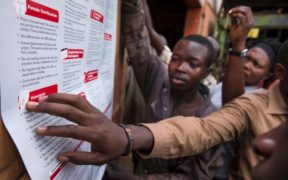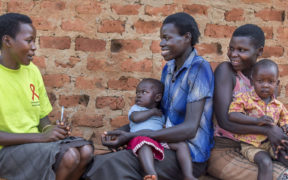Author:
Precious Mutoru, MPH

The COVID-19 pandemic has disordered the livelihoods of adolescents and young people across Uganda’s communities in many ways. With the first COVID-19 wave in March 2020 came the adoption of containment measures, such as the closure of schools, movement restrictions, and self-isolation. As a result, the health and well-being of young people, especially adolescent and youth sexual and reproductive health (AYSRH) in Uganda, took a hit.

Health care systems across the globe have always been based on a provider-to-client model. However, the introduction of new technology and products, and the increasing ease of access to information, has caused a shift in how health services can be delivered—placing clients at the center of health care. Various health areas, including sexual and reproductive health and rights (SRHR), have embraced self-care interventions. These methods increase access to and use of essential health services. This is especially important as health care systems become increasingly overburdened, coupled with the urgency to respond to individuals’ and communities’ SRHR needs across all life stages.













